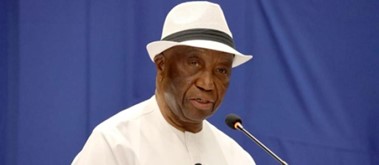In a letter dated October 7, 2024, from Jonathan Paye-Layleh of New Georgia Township, Monrovia, to President Joseph Nyuma Boakai, the author expresses gratitude for the president’s efforts to restore Liberia’s image and improve the living conditions of the citizens. The letter emphasizes the importance of persistent oversight and accountability in governance, suggesting that without sufficient monitoring mechanisms, the administration’s transformative vision may falter. Paye-Layleh applauds the accomplishments made during the early months of the administration but cautions that maintaining momentum requires more honest and efficient strategists who can implement the president’s agenda effectively.
Paye-Layleh proposes the establishment of a presidential think-tank to ensure critical public issues receive the necessary presidential attention. This team would regularly review audit and investigation reports, analyze public concerns raised through various platforms, and monitor adherence to national policies and directives. By compiling updates and actionable recommendations on a weekly basis, the think-tank could serve as a vital conduit for information, ensuring that the president remains informed about potential corruption and accountability issues within the government. This structure aims to prevent a situation where public servants become complacent or negligent regarding their responsibilities.
The letter also touches on the need for a comprehensive review of the advisory structure surrounding the presidency. Paye-Layleh argues that due to the significant responsibilities of an aging president, it’s crucial to surround him with a team of highly experienced advisors. He recommends assigning small teams of experts, rather than relying on individuals, to address specific matters. This collaborative approach would enable more robust discussion and thoughtful analysis before presenting recommendations to President Boakai, ultimately leading to more informed decision-making.
A significant theme in Paye-Layleh’s letter is the call for austerity measures across all three branches of government. He argues that the current salary levels in the public sector, especially in a country where many citizens live below the poverty line, are unjustifiable. By proposing salary and benefit cuts, he emphasizes the necessity of aligning public service with the values of duty and sacrifice rather than wealth accumulation. The proposed “straight-talk” retreat, involving leaders from all branches of government, aims to foster genuine agreement and commitment to austerity, improving the country’s economic situation without solely relying on international assistance.
Paye-Layleh concludes his letter by expressing concern that his previous advice may not have reached the president effectively. By making this letter publicly available, he seeks to bring transparency to his recommendations and stimulate broader discourse on essential governmental reforms. He reiterates the importance of good governance, effective strategic implementation, and the need for austerity in serving as a wake-up call to the public sector’s sense of duty in a nation grappling with post-conflict recovery challenges.
In summary, the letter articulates critical reflections on governance practices within Liberia as the current administration seeks to fulfill its transformative vision. By advocating for a dedicated oversight body, a review of the advisory composition, and austerity measures, Paye-Layleh outlines a framework aimed at reinforcing accountability, enhancing the effectiveness of public administration, and ensuring that the values of service and equity take precedence in the face of ongoing socioeconomic challenges. His communication underscores the potential impact of thoughtful governance strategies in steering Liberia towards sustainable development and improved public welfare.


